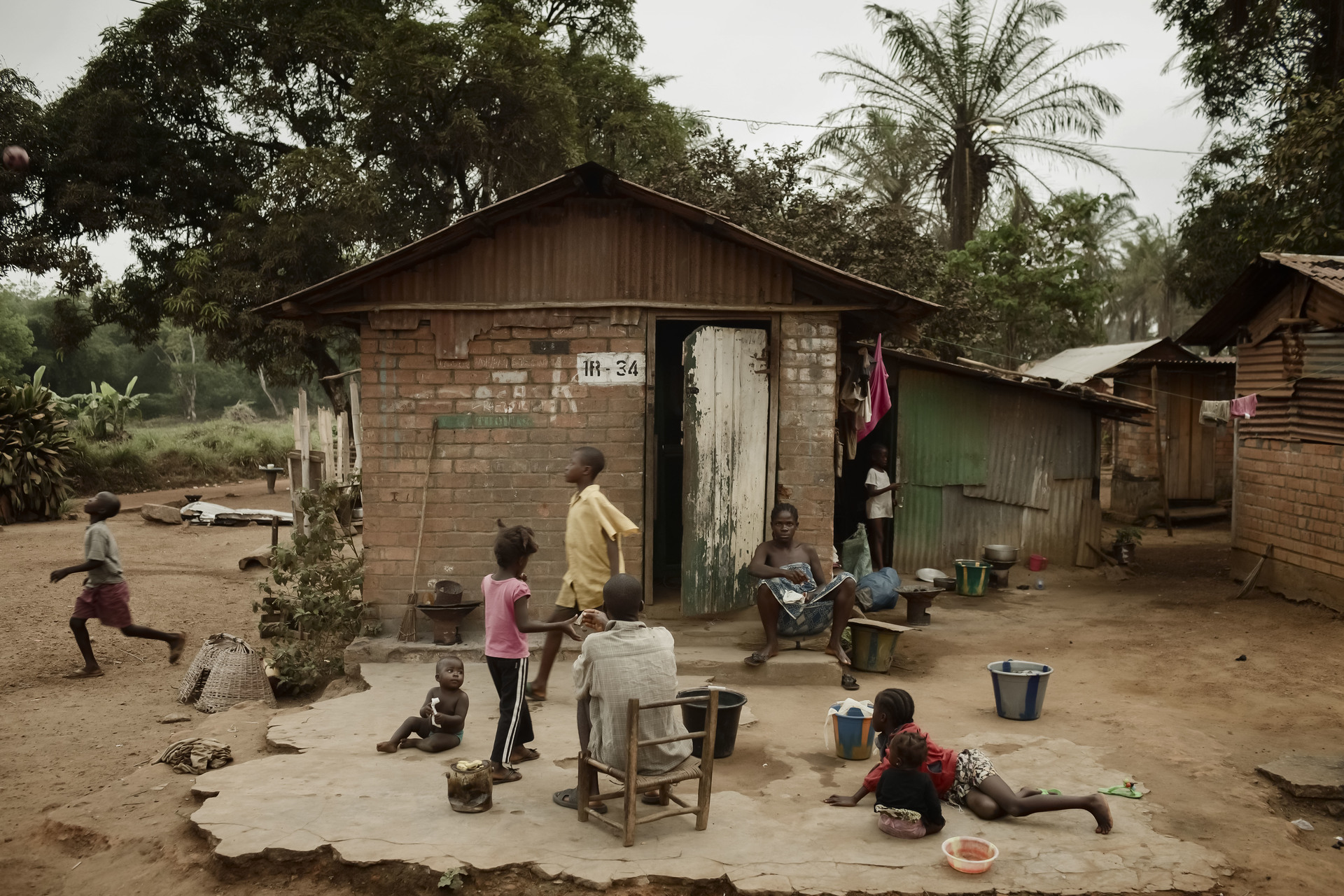Read the first part of this story here.
Life in Firestone was highly polarized- the tappers lived in the ‘camps’ and the elites lived in the ‘bungalows.’ The white people who carried themselves as ‘masters’ in Firestone thought to coin a word that perfectly captured our realities. We were admittedly ‘campers’ because only tappers and services workers lived in the neighborhoods called “camps.” The folks higher up in the company’s hierarchy, on the other hand, lived in bungalows. Like the word ‘bungalow’ inherently projects, those houses came with 24 hours electricity and regulated running water. The first time I visited my mom, who was a maid at one of the bungalows, I was shocked. It felt as if I had been transplanted through an entirely different world.
Now, my mom always deflected whenever I asked her to take me to her job like I sometimes accompanied Papa. This always bewildered me but reflecting upon her hesitance now, I am convinced she was embarrassed. Mama did not want me to see her at her lowest point. Unlike my dad, my mom was not an optimist. She hated our living condition. She dreaded going to work, and it angered mama, even more, when her bosses demanded her to sleepover at the bungalows while they are away on some fancy vacation. I tried to understand her frustration- tending to rich kids and watching them live a life she hoped to give me but could not. Her bosses could afford to send their kids off to the best universities after high school. But whenever my mom compared us to the elites, my dad always reminded her of the war and how it plays into Firestone’s hierarchical standard.
My dad and mom were both uneducated and after the war relieved him of all his lifelong acquisitions in Gbarnga, my dad was on the verge of being homeless. So when Firestone was recruiting, he did not hesitate. He was happy to have something he could call a job. We now had a one bedroom apartment that had neither a bathroom nor a kitchen- all we had was an outside toilet that we shared with the entire community and a kitchen that sat way too close to the garbage dump site. We tried to stay content, though. After the Liberian civil war, many of those who survived, were either internally or externally displaced, so my father always reminded me that sleeping on the floor was much better than sleeping under the bridges. At least I could go to school for free, and he earned three dollars a day, even if he met a burdensome quota.
However, the “schooling” benefit was what frustrated my mom the most. Firestone always bragged about their workers’ benefits and the fact that “even the tappers had access to free education, health insurance and lived in housing units provided by the company.” But our houses came with no electricity, running water, nor enough rooms to accommodate a regular Liberian family. Moreover, with such indecent salaries, it was impossible for the workers to meet the needs of their families.
I thought we were blessed, though and I always told mama this. At least she only had me. What about the regular Liberian family who proudly had 5-6 children and all had to live in a one bedroom apartment? But she continually dismissed my argument and looking back at it now, she was right. Although the free housing could barely accommodate a regular Liberian family, at least larger tapper families wouldn’t have to miss out on their monthly salaries because their dads could not achieve their quotas- the children could chip in and help.
Mama had no regards for that free education publicity stunt Firestone was doing. “What’s the essence of free education if we cannot afford to send you to college?”, she asked. “If the kids from larger families boycotted school to help their dads, that would be more beneficial than wasting time sitting in class for a useless education. Helping your dad on the fields is way better than sitting among rich kids who have their bright futures mapped out, my child. Your mates can value education and afford to pay attention in class because they get to eat a sumptuous breakfast every morning and barely have to walk to school. They will go off to become future doctors and lawyers while you will end up marrying another tapper and having kids- the cycle continues. There’s no getting out. We are trapped”, she cried on countless occasions.
Papa simply shrugged whenever Mama said things like that. He despised Mama’s bleak foretelling. But was Mama wrong? Even if I wanted to succeed in high school, I could not and Papa’s denial angered me even more. He was not oblivious, so it frustrated me that he consistently feigned happiness and insisted on staying positive. That stoked every bad emotion within me because deep down, I knew the only way out of this poverty trap was education. Before Firestone started to give out college scholarships to high achieving students, I sided with mama. Those who scored high on the national exams would get to study in Morocco on full scholarships and one day return to Liberia and pay forth. But how could I even compete against the best students? I fought with my thoughts.
In addition to not affording my textbooks, we had no electricity! If I needed to study, I had to sit under the streetlights which were located within two miles of the camps. Under mama’s dead body would she ever allow me to leave late at night to study with my mates. She feared that mixing with other students at night would get me pregnant! How absurd, I thought.
Anyway, forget mama’s paranoia. It was the least of my problems; because every week, I was extremely late to school due to waking up at 5 am and walking over a 2 hours distance, or I missed classes because papa fell sick and he needed the extra hand. As daunting as that was, my only option was to assist him. If only I had other siblings, they could help; we could at least rotate helping out papa, and I could miss out a day or two of school, but I dared not utter those thoughts aloud.
Mama was very sensitive about my wish for siblings and when I was old enough, I understood why- Mama couldn’t have any more kids, even if she wanted to. One fateful day after Mama had me, she was toting rounds of buckets of water at work, while six months pregnant, and she fell. As soon as she hit the ground, she felt a sharp pain shooting in her abdomen. She gasped and looked down- there was some liquid rolling down her legs. She couldn’t understand what was happening. The midwife was called and she dealt the ultimate blow- Mama was having a miscarriage. That was the end. Mama was told that she could never have more children and no matter how hard my parents tried, the verdict never changed. I was fated to be the only child. So, I did everything I could. I studied maniacally and sacrificed sleep because I had to become one of the best and go to college. I sacrificed all my personal desires for the greater good of the family because I just knew- if we were ever to leave the camps, it had to be through me.
Authored by Suma Massaley
Featured picture by Micro Di Lauro


I am impressed with this web site, rattling I am a big fan .